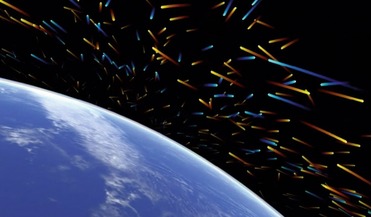 February 2022
Revolution and responsibility: the challenges of space
February 2022
Revolution and responsibility: the challenges of space
... probably unknown to us today but will be up to us to undertake or not (e.g. to continue human exploration, exploit space resources, colonise the Moon or Mars). In short, the space of tomorrow will be, as it has been for 60 years, a mixture of future...
 May 2022
The Space Industry in 2022
May 2022
The Space Industry in 2022
... on a reusable rocket, taking people and cargo to the Moon and potentially fulfilling billionaire Elon Musk’s dream of colonising Mars. Other heavy rocket launches include ULA’s Vulcan, Blue Origin’s New Glenn, as well as Europe’s Ariane...
 June 2022
In-orbit servicing and the future of the space industry
June 2022
In-orbit servicing and the future of the space industry
.... Severely reduced global telecommunications, navigation systems, weather forecasting, Earth imaging, and little hope of exploring and colonising the solar system. With about 30,000 new satellites lined up for launch over the next 10 years...
 January 2023
Evolving human space culture – reflections on humanity’s cultural potential in space
January 2023
Evolving human space culture – reflections on humanity’s cultural potential in space
...development as a species. Various attributes appear critical for that respect and eventual societal and cultural cohesiveness as we colonise and explore further into space. We already observe that cultural life on the International Space Station (ISS...
 October 2024
Space exploration remains a crucial endeavour for humanity
October 2024
Space exploration remains a crucial endeavour for humanity
...These include costs, health risks and technological obstacles. Ethical and legal considerations regarding space colonisation, resource utilisation and celestial environmental impact require careful examination and international cooperation. While the...
 October 2024
Cinema and extraterrestrial archaeology
October 2024
Cinema and extraterrestrial archaeology
... rock formations were used as the setting for the film Total Recall and in the context of a human colonisation of Mars, the excavation of galleries under the Pyramid Mountain gave access to a gigantic reactor built by an alien civilisation...